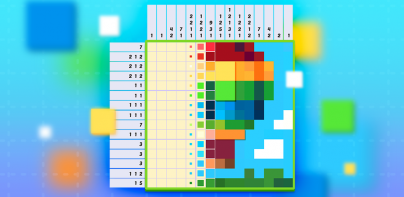


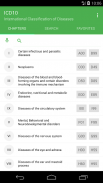
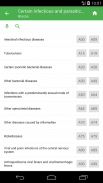
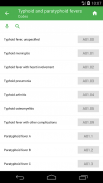

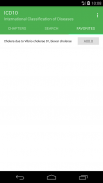
ICD 10

ICD 10 ၏ ရွင္းလင္းခ်က္
The International Classification of Diseases (ICD) is the international "standard diagnostic tool for epidemiology, health management and clinical purposes". Its full official name is International Statistical Classification of Diseases and Related Health Problems.
The ICD is maintained by the World Health Organization (WHO), the directing and coordinating authority for health within the United Nations System. The ICD is designed as a health care classification system, providing a system of diagnostic codes for classifying diseases, including nuanced classifications of a wide variety of signs, symptoms, abnormal findings, complaints, social circumstances, and external causes of injury or disease. This system is designed to map health conditions to corresponding generic categories together with specific variations, assigning for these a designated code, up to six characters long. Thus, major categories are designed to include a set of similar diseases.
The ICD is published by the WHO and used worldwide for morbidity and mortality statistics, reimbursement systems, and automated decision support in health care. This system is designed to promote international comparability in the collection, processing, classification, and presentation of these statistics. Like the analogous Diagnostic and Statistical Manual of Mental Disorders (which is limited to psychiatric disorders), the ICD is a major project to statistically classify all health disorders, and provide diagnostic assistance. The ICD is a core statistically based classificatory diagnostic system for health care related issues of the WHO Family of International Classifications (WHO-FIC).
This APP was built for students and healthcare professionals. We are not responsible for the codes provided. These codes are for reference only.
ရောဂါ၏နိုင်ငံတကာခွဲခြားရေး (ICD) ကိုအပြည်ပြည်ဆိုင်ရာ "ရောဂါ, ကျန်းမာရေးစီမံခန့်ခွဲမှုနှင့်လက်တွေ့ရည်ရွယ်ချက်များအတွက်စံအဖြေရှာတဲ့ tool ကို" ဖြစ်ပါတယ်။ ၎င်း၏အပြည့်အဝအရာရှိတဦးကအမည်အားရောဂါများအပြည်ပြည်ဆိုင်ရာစာရင်းအင်းအမျိုးအစားခွဲခြားခြင်းနှင့်ဆက်စပ်ကျန်းမာရေးပြဿနာများဖြစ်ပါတယ်။
အဆိုပါ ICD ကမ္ဘာ့ကျန်းမာရေးအဖွဲ့ (WHO) က, တိုက်ရိုက်အားဖြင့်ထိန်းသိမ်းထားခြင်းနှင့်ကုလသမဂ္ဂစနစ်အတွင်းနျြးမာရေးအတှကျအခွင့်အာဏာညှိနှိုင်းနေပါတယ်။ အဆိုပါ ICD ဆိုင်းဘုတ်များ, ရောဂါလက္ခဏာတွေ, ပုံမှန်မဟုတ်သောတွေ့ရှိချက်, တိုင်ကြားမှုများ, လူမှုရေးအခွအေနနှင့်ဒဏ်ရာသို့မဟုတ်ရောဂါပြင်ပအကြောင်းတရားများ၏ကျယ်ပြန့်မျိုးစုံ၏မသိမသာကွဲပြားခွဲခြားမှုအပါအဝင်ရောဂါများခွဲခြားဘို့အဖြေရှာတဲ့ codes တွေကိုတစ် system ကိုပေး, ကနျြးမာရေးစောငျ့ရှောကျမှုခွဲခြားသည့်စနစ်အဖြစ်ဒီဇိုင်းပြုလုပ်ထားသည်။ ဒီစနစ်ရှည်လျားခြောက်လဇာတ်ကောင်အထိအဲဒီသတ်မှတ်ထားတဲ့ကုဒ်များအတွက်တာဝန်ပေးဖို့, တိကျတဲ့မူကွဲအတူယေဘုယျအမျိုးအစားသက်ဆိုင်ရာမှကျန်းမာရေးအခြေအနေများ map ဖို့ဒီဇိုင်းပြုလုပ်ထားသည်။ ထို့ကြောင့်အဓိကအမျိုးအစားဆင်တူရောဂါများအစုတခုထည့်သွင်းရန်ဒီဇိုင်းရေးဆွဲနေကြပါတယ်။
အဆိုပါ ICD အဆိုပါ WHO ကထုတ်ဝေသောနှင့်ရောဂါနှင့်သေဆုံးနှုန်းစာရင်းဇယားများအတွက်ကမ္ဘာတစ်ဝှမ်းသုံးငွေကြေးပြန်လည်စနစ်များ, နှင့်ကျန်းမာရေးစောင့်ရှောက်မှုအတွက်ဆုံးဖြတ်ချက်ထောက်ခံမှု automated ဖြစ်ပါတယ်။ ဒီစနစ်စုဆောင်းခြင်း, အပြောင်းအလဲနဲ့, ခွဲခြား, ဤစာရင်းဇယားများ၏တင်ပြချက်နိုင်ငံတကာနှင့်နှိုင်းယှဉ်မြှင့်တင်ရန်ဒီဇိုင်းပြုလုပ်ထားသည်။ (စိတ်ရောဂါမမှန်ဖို့ကန့်သတ်သော) စိတ်ပိုင်းဆိုင်ရာ Disorders ၏အလားတူ Diagnostic နှင့်စာရင်းအင်းလက်စွဲစာအုပ်လိုပဲ ICD ကစာရင်းအင်းအားလုံးကျန်းမာရေးချို့ယွင်းခွဲခြားနှင့်ရောဂါရှာဖွေအကူအညီပေးနေတဲ့အဓိကကျသည့်စီမံကိန်းဖြစ်သည်။ အဆိုပါ ICD အပြည်ပြည်ဆိုင်ရာခွဲခြားသတ်မှတ်ပုံ (WHO က-FIC) ၏ WHO ကမိသားစုကျန်းမာရေးပြုစုစောင့်ရှောက်မှုနှင့်ပတ်သက်သောကိစ္စများများအတွက်အဓိကကစာရင်းအင်းအခြေစိုက် classificatory အဖြေရှာတဲ့စနစ်ဖြစ်သည်။
ဒီ app ကိုကျောင်းသားများနှင့်ကျန်းမာရေးစောင့်ရှောက်မှုကျွမ်းကျင်သူများအဘို့တည်ခဲ့သည်။ ကျနော်တို့ပေး codes တွေကိုတာဝန်ရှိသည်မဟုတ်ပါ။ ဒီကုဒ်တွေကိုသာရည်ညွှန်းအဘို့ဖြစ်ကြ၏။







